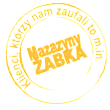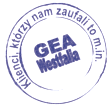Frequently asked questions
Enrolment, dates and place of classes, prices, syllabus, examination
How do I sign up for a course?
If you are interested in participating, please contact us first by e-mail or telephone. During the first contact we ask for basic information: personal data, PESEL number, education, experience in using the given equipment. In the case of employers, we ask to collect these data from employees referred to the training.
You can also sign up for the course via platformedukacji.pl.
Can other people, such as colleagues, also enrol on the course?
The registration system used in the Centre makes it possible to enrol other persons as well. It is possible that one person (treated in the system as an entity) enrols others (treated as subordinate to this entity or as separate entities).
How to organise training for employees?
If you would like to organise such training, please contact us by phone or email. Based on the information we receive from the employer, we prepare a quote, a training programme and an application form. The programme is determined based on information on these employees' experience of operating the equipment in question. It can be full-time or shortened if the employees have already dealt with the equipment.
Training dates and locations are adapted to the needs of company employees. Classes can be organised throughout the country.
How do I pay for my training?
We offer two payment methods to individual customers: via the Przelewy24 platform or the BLIK system.
Business customers can pay for training on the basis of a proforma invoice. It is also possible to issue an invoice with deferred payment, but this requires separate arrangements.
Can you sign up without any experience?
Yes, courses are also organised for people with no experience. The programme covers the full range of topics required for the external examinations and there are a sufficient number of hours for practical exercises.
The only requirements for those starting the course are to be over 18 years of age, have a minimum of primary school education and have no health problems.
In addition, persons enrolling on courses for maintenance technicians should have basic knowledge of electrical engineering (ability to read electrical diagrams), hydraulics, mechanics - material science, reading kinematic diagrams. This knowledge can be supplemented in the framework of other training courses organized in the Centre, for example, the first group in the field of operation and supervision of power equipment.
What dates are available?
Available dates of classes are published on platformedukacji.pl. Most training courses start at least once a month. If there is a larger number of participants, it is possible to create additional groups.
If you are interested in a closed course, for company employees, the date is set individually.
Are classes held only during the week or also at weekends?
Classes are held at times convenient for people who work full-time. It is possible to attend classes during the week, in the afternoons, as well as on Saturdays and Sundays, so that studying does not interfere with work.
Where do the classes take place?
Training courses are held at the Centre's headquarters, in Warsaw, but are also organised in other large cities - depending on interest.
Training courses for companies can be organised at the client's premises or at another location, depending on the arrangements. Our statute allows us to organise training outside our premises. We have teaching staff in sufficient numbers to conduct away training courses. In such cases, the customer is responsible for providing didactic and technical facilities. It is necessary to ensure access to working technical equipment with valid periodical inspections and a conservator's review. The customer shall also ensure safety measures during the training.
Do you organise the course online?
It is possible to participate in online courses. These are webinars conducted by the Centre's instructors, i.e. classes which take place live, activating participants and resembling in form lectures. Each participant can log on to the platform, which also contains training materials for self-study and tests.
What are the hardware requirements for taking an online course?
To participate in the live webinars, you must have a computer or laptop no older than 6-7 years, with a Windows or Macintosh operating system. The platform also works on smartphones and tablets.
No additional software needs to be installed. The webinar platform works like a website and runs in a browser such as Chrome or Firefox.
After registering for an online training course, the system sends SMS and email links with the encoded password and login needed to participate in the training course.
How many hours does the course last?
The duration of each course varies from a few hours to several tens of hours. Please check the details on the course description pages.
The varying duration is not only due to the different subject areas for the different machines, but also because we organise courses for more and less experienced people. If you have already worked in an auxiliary position and have worked with the equipment, or if you obtained your licence many years ago and wish to renew it, a few hours are enough to brush up on your knowledge. If you have no previous experience, you will need to gain a thorough theoretical and practical understanding of the machine type in question.
How many hours does the practical part of the course last?
The number of hours spent on practical machine learning varies. The time required for adults to learn varies considerably. This is due to previous experience and general aptitude. There are people who can operate the equipment easily after just a few hours, others need more time. At the registration stage, we interview the participant so that we can place him in a group with more or less hours on the manoeuvring area. Differentiated training programmes have been agreed with the Office of Technical Inspection.
Thanks to our proprietary apprenticeship scheduling system, trainees receive information about available practical dates via SMS, so they can choose the times and days that are convenient for them.
How much does training cost?
Prices of trainings vary depending on the subject matter and also on whether the training is open or closed. For companies organising closed trainings for their employees, we can offer preferential rates due to the larger number of people referred to the training.
Detailed information on the prices of individual training courses is provided at the registration stage. We encourage you to contact us by e-mail or telephone.
Is there a discount if more people register?
Yes, we can offer lower rates to clients who wish to train a larger number of employees with us than in the case of open training sessions, for which participants apply individually. We will provide you with a quotation immediately after your first contact by phone or e-mail.
What is included in the course price?
The course price includes the following:
- Theoretical classes in the form of classroom or online webinars
- Training material in the form of content available on a learning platform with scripts, videos and sample knowledge tests
- Practical classes with access to different types of equipment
- Equipment needed during practical sessions
- Conducting an external examination by inspectors from UDT or other bodies
- At the end of the training, a simplified supplement confirming that the course has been completed
- Assistance with accommodation
- During coffee breaks: tea, coffee, biscuits
- By separate arrangement, organisation of other meals
Does the course price include an external examination?
For most courses, the price includes the cost of organising and administering the UDT, TDT, G1, G2, G3 or other examination. For some courses and groups, no exams are planned - see the individual course descriptions for relevant information.
What is the course of action?
The classes are divided into practical and theoretical parts. In the theoretical part, the instructor teaches the trainees about the construction of equipment, safety rules, information on technical supervision, etc. The practical part takes place with the use of the machines that are the subject of the training, and covers such issues as preparing the machine for work, operation or maintenance, dealing with breakdowns.
The classes take an active form: the instructors ask the participants questions, conduct knowledge tests and encourage them to work independently.
Detailed course programmes can be found on the individual course pages.
Does the scope of the material vary according to the experience of the participants?
Yes, already at the registration stage we ask candidates about their education, qualifications and experience. On this basis, we can assign them to a more or less advanced group. The number of hours and the scope of the material vary depending on the experience of the participants. Training programmes in this form have been approved by the Office of Technical Inspection.
When organising training for a company, is it possible to create an individual training programme?
Yes, the training programme is sent together with the quotation and the application form. The content and number of training hours are determined on the basis of information obtained from the employer. In the case of persons without experience, the course will cover the full range of knowledge required for the external examination. If the course will be attended by people who use the given type of equipment at work (e.g. work in auxiliary positions), the programme may be shortened.
Is the training difficult in terms of level of knowledge?
The amount of knowledge to be acquired during the training is quite large. In addition, we provide our trainees with content on a learning platform for self-study.
The training programme is agreed with the qualification checking bodies and coincides with their examination requirements. We try to make our training standards as high as possible. We periodically modify the scope of transmitted knowledge based on current regulations and standards.
What equipment is used for the practical sessions?
The centre has equipment representative of the group, for example, in the case of platforms, these will be scissor and boom lifts, self-propelled and free-propelled. Training courses for forklift and telehandler operators take place on JCB, Linde, Jungheinrich, Toyota equipment - forklifts, variable reach and operator lift. In the case of crane courses, gantry cranes are used. The mentioned equipment is available during trainings organized among others in Warsaw-Ursus, Katowice, Cracow.
What information can be found on the training platform?
The training platform has been created for people who pass an e-learning course and for those who study stationary and want to complete and consolidate their knowledge. The platform is used to conduct webinars on online courses. In addition to live webinars, other content is also published: training scripts, videos, mock tests to prepare for exams. Students can log on to the platform at any time using a computer, tablet or phone.
Does the Centre conduct internal examinations?
Participants' knowledge is tested several times: before, during and after the class. The instructor also evaluates the participants' knowledge and skills in the practical part.
Does completion of the training lead to certification?
For most training courses, an external examination must be passed in order to obtain a qualification. Thus, the mere completion of training is not a sufficient confirmation of qualifications. However, the programme and the form of classes have been designed in such a way as to ensure the highest possible exam pass rate among the trainees.
How is the examination organised?
The centre organises examinations and mediates between trainees and examination bodies. Training dates are arranged so that participants can take their exams as soon as possible. The centre keeps a register and sends examination reminders to participants before the examination date. The examination is conducted by authorised inspectors from UDT, TDT or other organisations.
Does all training end with an external examination?
An exam is organised for most courses, but for some topics it is not planned. You will always find detailed information about this on the course description pages.
What is the course of the examination?
This depends on the category of the qualification, but in most cases the exam consists of two parts: theoretical and practical. The theoretical part is a knowledge test with closed questions. During the practical test, the candidate must demonstrate knowledge of the construction of the equipment, preparation for work, behaviour in the event of failures or accidents, etc.
What equipment is authorised?
The authorisations concern equipment under technical supervision. The type and type of equipment for which you are authorised to work after passing the examination are in accordance with the subject of the training. Detailed information on the scope of authorisations can be found in the descriptions of the individual training courses.
How long does it take to receive my entitlement?
Licences are issued by external bodies organising examinations. The centre has no influence on the waiting time. Normally, according to the regulations, the licence should be issued within seven working days of the date of the examination. In practice, this period may extend to as many as 30 working days if the examination body is overloaded with other duties.
Do the rights also apply abroad?
This depends on the laws and regulations in the country concerned. In countries where there is no regulation of the profession, completing training and holding a Polish qualification may be sufficient. Within the European Union, there is a Directive on mutual recognition of qualifications of member states. In other countries (Norway, Switzerland), Polish qualifications are not known or recognized and therefore may not be recognized even after translation.
All participants receive a simplified supplement indicating that they have completed the course in accordance with international standards, on request and for an additional fee - also in English. In some countries this document can be recognised. In addition, for a fee, a certificate in accordance with ISO18878 can be obtained as a plastic card with a photograph or as a hard copy. The certificate is issued in English.
What is the period of validity of the entitlement?
Depending on the type and nature of the equipment, licences are valid for 5 or 10 years. When they reach the end of their validity period, the Centre will, as far as possible, send out renewal notices to trainees.
Can powers be withdrawn or withheld?
Such a situation is possible when the qualification body considers that the person holding the qualification is not acting in accordance with the regulations or safety rules at work.






























